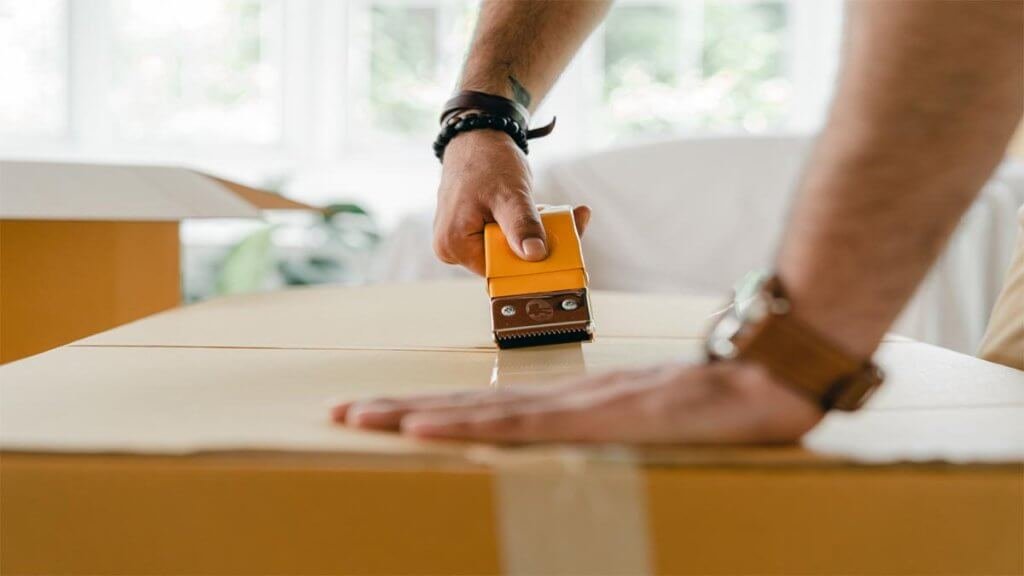Are you planning a move to a new state? Relocating can be an exciting yet overwhelming experience. Whether you’re moving for a job, education, or a fresh start, it’s important to be well-prepared to ensure a smooth transition. In this article, we will provide you with eight essential tips to make your relocation process as seamless as possible. From organizing your belongings to finding the right moving company, we’ve got you covered. We’ll also share expert advice on how to update your address, transfer utilities, and familiarize yourself with your new community. Additionally, we’ll discuss the importance of creating a budget and timeline for your move, as well as tips for packing efficiently and reducing stress during the process. So, if you’re ready to embark on your new adventure, keep reading to discover our top tips for a successful and stress-free relocation to a new state.

Planning Your Move: Where to Start
Moving to a new state requires careful planning and organization. To begin, create a checklist of tasks that need to be completed before, during, and after your move. This will help you stay on track and ensure that nothing falls through the cracks. Start by researching moving companies in your area and obtaining quotes to compare prices and services. It’s also important to decide whether you will be renting a truck and moving yourself or hiring professionals to handle the entire process. Consider your budget and the amount of time and effort you’re willing to invest in the move.
Once you’ve made these decisions, it’s time to start decluttering and organizing your belongings. Go through each room in your current home and decide what items to keep, donate, or sell. This will not only help you reduce the amount of stuff you have to move but also make unpacking at your new home much easier. Create a system for labeling your boxes, such as color-coding or numbering, to ensure that everything ends up in the right place. Finally, don’t forget to notify important parties of your upcoming move, such as your employer, schools, and healthcare providers. This will help facilitate a smooth transition and minimize any potential disruptions.
Researching Your New State: Climate, Cost of Living, and Lifestyle
Before you make the move to a new state, it’s essential to do your research. Start by familiarizing yourself with the climate of your new location. This will help you determine what type of clothing and household items you’ll need to bring with you. If you’re moving to a state with drastic weather changes, such as from a warm climate to a cold one, you may need to invest in new winter gear or make arrangements to store your belongings during certain seasons.
Next, consider the cost of living in your new state. Research housing prices, taxes, transportation costs, and other expenses to get a sense of how your budget will be impacted. It’s also a good idea to compare salaries and job opportunities in your new area to ensure that the move will be financially beneficial for you and your family. Additionally, take some time to learn about the lifestyle and culture of your new state. This can help you adjust more easily and find activities and communities that align with your interests and values.
Finding a New Home: Renting or Buying
One of the most crucial decisions you’ll make when relocating to a new state is whether to rent or buy a home. Each option has its advantages and disadvantages, so it’s important to carefully consider your personal circumstances and preferences. If you’re unsure about your long-term plans in your new state or want more flexibility, renting may be a better choice. Renting allows you to test the waters and get a feel for the different neighborhoods before committing to a specific area. It also relieves you of the responsibilities and costs associated with homeownership, such as property taxes and maintenance.
On the other hand, if you’re confident about your decision to settle in your new state and have the financial means to do so, buying a home can be a wise investment. Owning a home provides stability and the opportunity to build equity over time. It also allows you to personalize your living space and make changes without seeking permission from a landlord. Before making a decision, consult with a real estate agent who specializes in the area you’re moving to. They can provide valuable insights and guide you through the buying or renting process.
Hiring Professional Movers and a Car Transport Service
When it comes to relocating to a new state, hiring professional movers can save you time, effort, and stress. Research moving companies in your area and read reviews from previous customers to ensure that you choose a reputable and reliable company. Get multiple quotes and compare prices and services to find the best fit for your needs and budget. It’s also a good idea to check if the moving company is licensed and insured. This will protect your belongings in case of any accidents or damages during the move.
If you own a car and are moving a long distance, consider hiring a car transport service. This can be especially beneficial if you’re driving a moving truck or have multiple vehicles to transport. Services for car transport in Texas and other states can safely and efficiently move your vehicle to your new state, allowing you to focus on other aspects of the move. Just like with moving companies, research different car transport services and obtain quotes to find the most reliable and cost-effective option.
Organizing and Decluttering Your Belongings
Moving to a new state provides a perfect opportunity to declutter and organize your belongings. Before you start packing, go through each room in your current home and decide what items to keep, donate, or sell. Be ruthless and only keep the things that truly bring you joy or serve a practical purpose. The less you have to pack, the easier and more cost-effective your move will be.
As you declutter, create separate piles for items that you want to donate, sell, or throw away. Consider hosting a garage sale or using online platforms to sell unwanted items. Not only can this help you make some extra cash, but it also ensures that your belongings find new homes rather than ending up in a landfill.
Once you’ve decluttered, it’s time to organize your belongings for the move. Start by gathering packing supplies such as boxes, tape, bubble wrap, and labels. Use smaller boxes for heavy items and larger boxes for lighter ones to prevent injuries and make lifting easier. Pack fragile items with care, using plenty of padding and wrapping materials. Label each box with its contents and the room it belongs to. This will make unpacking at your new home much more efficient and less overwhelming.
Packing and Labeling Your Boxes Efficiently
Proper packing and labeling can make a world of difference when it comes to unpacking and settling into your new state. Follow these tips to pack and label your boxes efficiently:
- Start early: Begin packing well in advance of your move to avoid last-minute stress. Pack non-essential items first and leave everyday essentials for last.
- Use sturdy boxes: Invest in high-quality boxes that can withstand the weight and pressure of moving. Reinforce the bottom of each box with extra tape for added strength.
- Pack strategically: When packing boxes, place heavier items at the bottom and lighter items on top. This will prevent fragile items from getting crushed and make lifting easier.
- Wrap fragile items: Use bubble wrap, packing paper, or towels to protect fragile items during the move. Pack them tightly and use extra padding to minimize the risk of damage.
- Label each box: Clearly label each box with its contents and the room it belongs to. This will make unpacking a breeze and help you find specific items when needed.
- Create an inventory list: Keep a detailed inventory list of all the items you’re packing. This will help you keep track of your belongings and ensure that nothing gets lost or left behind.
By following these packing and labeling tips, you’ll save time and frustration when it comes time to unpack in your new state.
Updating Your Address and Transferring Utilities
One of the most important tasks when relocating to a new state is updating your address and transferring utilities. Start by notifying the post office of your upcoming move and fill out a Change of Address form. This will ensure that your mail gets forwarded to your new address. It’s also important to update your address with important parties such as banks, credit card companies, insurance providers, and government agencies.
In addition to updating your address, you’ll need to transfer or cancel your utilities before leaving your current state. Contact your utility providers, including electricity, gas, water, internet, and cable, to schedule the disconnection or transfer of services. Make sure to provide them with your new address and the date you’ll be moving out. It’s a good idea to schedule the disconnection or transfer a few days after your move-out date to ensure that you have utilities available at both locations during the transition.
Lastly, don’t forget to update your driver’s license and vehicle registration with the Department of Motor Vehicles (DMV) in your new state. Most states require you to update this information within a specific timeframe after establishing residency. Check the DMV website or contact their office to find out the requirements and necessary documents for updating your driver’s license and vehicle registration.
Settling Into Your New State: Exploring, Making New Friends, and Getting Involved
Moving to a new state is not just about the physical act of moving; it’s also about embracing a new lifestyle and community. Once you’ve arrived at your new state, take some time to explore your surroundings. Visit local attractions, parks, and restaurants to familiarize yourself with the area. This will help you feel more connected and at ease in your new environment.
Making new friends in a new state can be challenging, but it’s essential for building a support network and feeling a sense of belonging. Take advantage of social opportunities such as joining clubs, attending community events, or volunteering. These activities can help you meet like-minded individuals and make connections in your new community. Additionally, reach out to neighbors and coworkers to introduce yourself and ask for recommendations on local amenities and services.
Getting involved in your new state can also help you feel more rooted and engaged. Consider joining local organizations or associations related to your interests or hobbies. This can provide a sense of purpose and connection, as well as opportunities for personal and professional growth. Embrace the unfamiliar and be open to new experiences and opportunities that your new state has to offer.
Checklist for a Smooth Transition to Your New State
To summarize, here’s a checklist of essential tasks for a smooth transition to a new state:
- Research moving companies and obtain quotes
- Declutter and organize your belongings
- Research the climate, cost of living and lifestyle of your new state
- Decide whether to rent or buy a home
- Hire professional movers and consider a car transport service
- Pack and label your boxes efficiently
- Update your address with important parties and transfer utilities
- Explore your new state, make new friends, and get involved
By following this checklist and implementing the tips provided, you’ll be well-prepared for a successful and stress-free relocation to your new state.
Conclusion
Relocating to a new state can be an exciting opportunity for growth and change. While the process may seem overwhelming at times, proper planning and organization can ensure a smooth transition. From researching your new state to packing and labeling your belongings, each step is important in creating a successful move. Remember to update your address, transfer utilities, and take the time to settle into your new community. Embrace the adventure and start fresh in your new state. Use this opportunity to explore new surroundings, make new friends, and get involved in your community. Moving to a new state can be a transformative experience that opens doors to new opportunities and a brighter future. So, take a deep breath, follow our essential tips, and embark on your journey with confidence. Happy moving!


